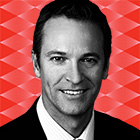This content is from:xinyabo体育app
2016 All-Asia Research Team: Quantitative Research, No. 1: Nigel Tupper & team
Bank of America Merrill Lynch advances from second place to knock Deutsche Bank off the top perch after three years.


Merrill Lynch
Total Appearances: 20
Team Debut: 2000
Bank of America Merrill Lynch advances from second place to knock Deutsche Bank off the top perch after three years. Chief global and Asia quantitative strategistNigel Tupper, 49, has led the firm’s crew in each of its eight top finishes since he and BofA Merrill debuted on this roster at No. 1 in 2000. Indeed, one fund manager in Australia singles out for praise the researcher’s well-earned expertise, hailing him for “doing this for more than 20 years” and having compiled “a good track record. He has a nice way of summarizing data and combining sectors and countries — it’s called ‘The Global Wave’ — which is comprehensive but not overly complicated. You can work down to see whether individual companies are rated up or down on an earnings-per-share basis. It’s a very good screen.” Overall, Tupper’s Hong Kong–based team of five is counseling clients to follow the smart money. “On average,” he says, “the stocks in which investors have been overweight have outperformed over the last two years, while stocks in which they have been underweight have underperformed. In other words, contrarian investing does not appear to have worked in recent years.” Specifically, he notes that the strategists’ analysis of how funds worth $11 trillion are globally positioned discloses that money managers’ largest positions in Asia ex-Japan are underweight Australian and Chinese banking equities and overweight their Indian counterparts. They recommend favoring cyclicals, particularly those that are “high quality, earnings-stable stocks,” he reports. At the same time, the group is advising investors to shun value strategies, which have “underperformed for most of the last four years,” explains Tupper. “When the cycle troughs and market leadership dramatically changes, we believe it will become important for investors to know how the consensus is positioned.”
